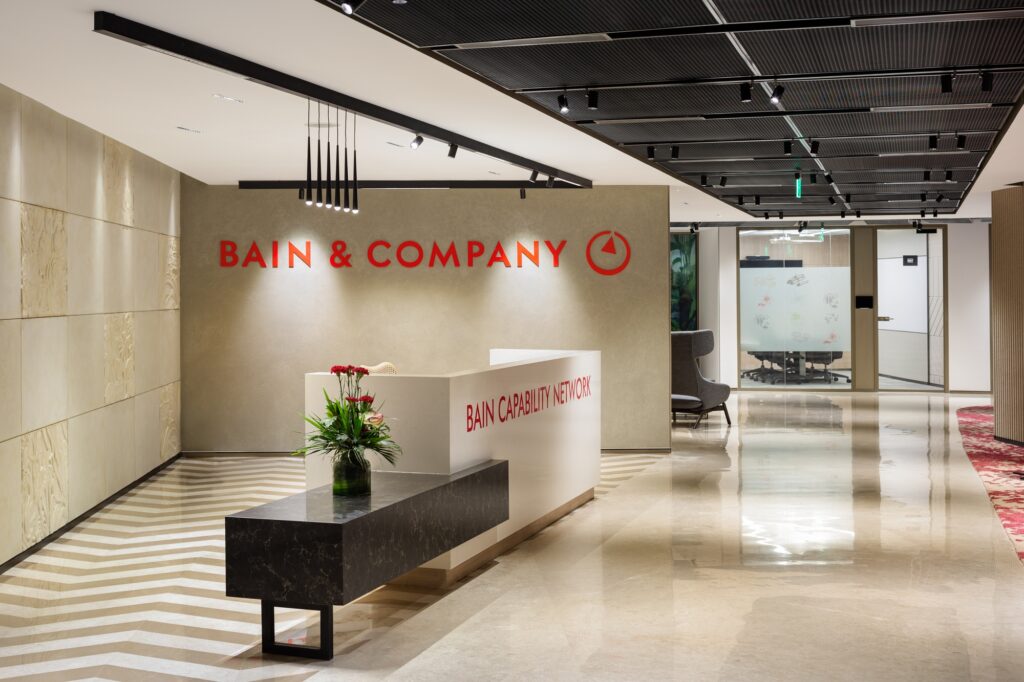Bain & Company Achieves First-Ever VCMI Carbon Integrity Platinum Claim

|
Listen to this story:
|
Bain & Company makes a Carbon Integrity Platinum Claim, demonstrating its progress on internal decarbonization and going above and beyond with investment in high-integrity carbon credits.
The Voluntary Carbon Market Integrity Initiative (VCMI) has announced that global management consultancy, Bain & Company, is the first organization to make a Carbon Integrity Platinum Claim. The Platinum Claim is the highest Carbon Integrity Claim. This claim requires the purchase and retirement of high-quality carbon credits in an amount equal to or greater than 100% of a company’s remaining emissions. By achieving a Carbon Integrity Platinum Claim, Bain & Company are demonstrating significant internal decarbonization, as well as a high-level of investment in high-integrity carbon credits. Through these investments, Bain & Company are delivering finance into projects that are proven to reduce global emissions, and benefit both people and the planet.
Through VCMI’s Claims Code of Practice (Claims Code), companies can make a Carbon Integrity Claim. To showcase increasing levels of climate achievement, companies and non-state actors can make three distinct Carbon Integrity Claims – Silver, Gold, and Platinum – to demonstrate they are going above and beyond their science-aligned emissions cuts. By making a Carbon Integrity Claim, a company leverages high-quality carbon credits to contribute to their climate action, helping to accelerate global net zero.
The Claims Code provides clear and transparent guidelines to companies so that they can engage in voluntary carbon markets with confidence and brings credibility to the claims companies make that involve the use of carbon credits.
Mark Kenber, Executive Director of VCMI commented: “Today marks a milestone in corporate climate action as Bain & Company make the first Carbon Integrity Claim. Their role as a first mover paves the way for other companies to step up, and demonstrates true climate leadership. This is a crucial step in fostering a high-integrity voluntary carbon market and shows how corporate decarbonization and the use of VCMs can complement each other to accelerate the transition to net zero.”
Sam Israelit, Chief Sustainability Officer at Bain & Company, said: “We are proud to support VCMI in this important first step toward unlocking significant capital for the climate transition. To achieve the ambitious goals set out by the Paris Agreement, businesses and governments need to pull all levers, starting with emissions avoidance and reduction, and complementing that with investments in high-integrity carbon markets. At Bain, our first priority has been to reduce our own climate impact by reducing operational emissions in line with the Science Based Targets Initiative (SBTi) Net Zero standards. We are on track to reduce our scope 1 and 2 emissions by 30% by 2026 and to reduce our business travel emissions by 35% per employee over the same time period. The VCMI Claims Code of Practice brings welcomed additional clarity for us to go beyond our own value chain mitigation by removing more carbon from the atmosphere than we emit on an annual basis. We hope others will join us on this journey.”
Along with a wide range of stakeholders, Bain & Company was a part of VCMI’s consultations in 2023, through the Stakeholder Forum and Early Adopters Program (EAP) as VCMI worked towards finalizing its Claims Code. This collaborative approach has helped create a robust Claims Code and a framework for companies to make high-integrity claims about their use of carbon credits.
There are four steps to make a Carbon Integrity Claim and companies must provide information relating to the Claims Code’s Foundational Criteria. These criteria establish best practice on corporate climate action and require firms to disclose their emissions, commit to Net Zero, set science aligned near-term emission reduction targets, demonstrate progress towards those targets and show that the company’s public policy advocacy supports the goals of the Paris Agreement.
Related Article: Microsoft Partners with Catona Climate for 350,000 Tonnes of Carbon Removal in Kenya
In addition to complying with VCMI’s Foundational Criteria, the company must meet requirements around the purchase of high-quality carbon credits through the use of Core Carbon Principle (CCP)-approved credits. Until CCP-approved credits become available in the market, companies can either purchase and retire CORSIA eligible credits or disclose how their due diligence processes align with all 10 CCPs. The Monitoring, Reporting and Assurance (MRA) Framework enables companies to substantiate a Carbon Integrity Claim, outlining specific information that must be disclosed by the company and appropriately evaluated, evidenced, and assured.
VCMI is working with other global companies in 2024 to make further Carbon Integrity Claims and welcomes the interest of companies seeking to engage in high-integrity carbon markets.









